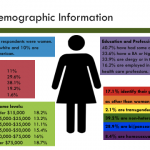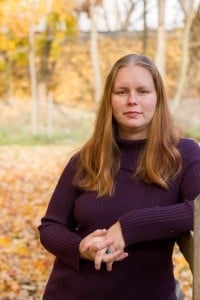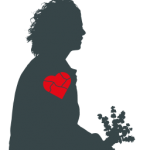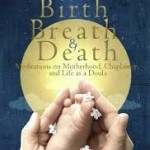Editor’s note: I asked some of our regular contributors to each respond to a quote from midwife and natural birth advocate Ina May Gaskin. In her new book Birth Matters Gaskin wrote:
Birth… matters because the journey through pregnancy and birth offers an irreplaceable way for women to explore their deepest selves – their minds, bodies, and nature… There is a sacred power in the innately feminine capacity of giving birth. It is one of the elemental, continuing processes of nature that women have the chance to experience, and it is the one act of human creation that is not shared by men.
This short passage stimulated some quite different responses. We’ve heard responses from Suus and Lilly, and today we have C. B. Cabeen’s response:
Like Gaskin, I feel the sacred in some of our most basic biological processes: in the cycles of birth and death, in the way they nestle immanent inside us and secretly structure the world outside, in the way they burst into day-to-day life and change whatever stories we thought we were in. My life tore open the year my mother died, which was also the year my first child was conceived, and I found myself dancing to deeper and older rhythms than my plans had encompassed. Feeling the pulse of the sacred as I did was a blessing and consolation. My daughter’s birth felt strangely ordinary after that, like it was something I’d done before. After all, my body knew what it was doing. Some months later, as I nursed my daughter, I whispered, “My people have been doing this since before we were human.”
Nevertheless, the first time I read this quotation of Gaskin’s, it sounded like a slap. When Gaskin writes that birth is something that “women have the chance to experience,” I add to myself: some women, not all. And when she writes that the experience of birth is “an irreplaceable way for women to explore their deepest selves,” I wonder about those women who don’t experience birth. Calling a topic sui generis or utterly unique, as Gaskin does, is a common rhetorical move when you’re trying to establish that your subject is important, but it can also establish poisonous hierarchies. Is a woman who chooses an epidural cutting herself off from the sacred, or is she having an equally valid experience, even if it’s a different one? And what about a woman who can’t conceive? Is she doomed to lesser knowledge of her body? Surely not. The knowledge of herself and her body that she comes to as she tries to conceive is just as accurate, and just as valuable, as the knowledge that another woman might gain through birthing. Women who don’t want to or can’t bear children haven’t missed out on exploring their deepest selves. Instead, they know themselves in part as people who haven’t given birth.
You could add to the list of exceptions: what about women who’ve had multiple miscarriages or stillbirths, but no live children? What about women who choose not to have children at all? What about women who weren’t born women? And within each of these categories, you’ll find a diversity of experiences again. A more pagan approach to childbirth might help remedy the tendency to essentialize it: I know that the sacred is multiple, and that the labyrinthine paths it follows aren’t always where I thought I wanted to go.
Christina is an eclectic witch orbiting Reclaiming. She enjoys finding ways to ritualize activities that aren’t traditionally religious–most especially indie tabletop roleplaying and scuba diving–and incorporate them into her spiritual path. For the last two years, Christina’s spirituality has focused on motherhood. Her ruminations on parenting can be found at Mouthing the World.












